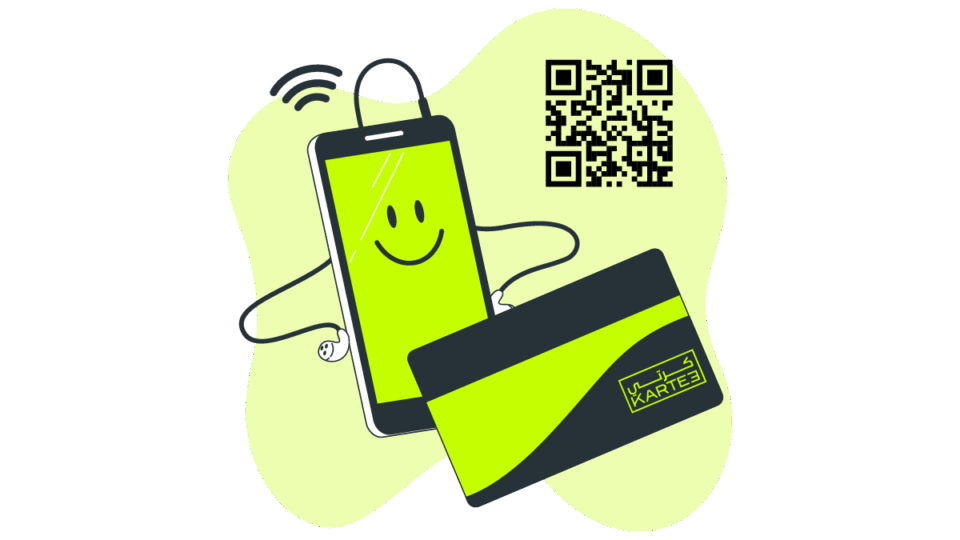
Paper Business Cards Are Dead. Here’s What Smart Companies Use Instead.
June 25, 2025
What is a Digital Business Card? | The Essential 2025 Guide to Paperless Contact Sharing
July 26, 2025
Introduction: Why Traditional Paper Business Cards Are Becoming Obsolete
Business cards have long been a staple of professional networking. Handing someone your card used to be the hallmark of a new connection. But in today’s fast-paced, digital-first world, paper business cards are quickly losing their edge.
Professionals are increasingly frustrated by their limitations - fragility, lack of interactivity, and environmental cost. The modern workplace demands solutions that are smarter, more sustainable, and more dynamic.
As a result, innovative alternatives to paper business cards are emerging, transforming how we share and store contact information.
The Problems with Paper Cards
Paper business cards come with several downsides that are hard to ignore in 2025:
Cost Over Time
- Reprinting due to outdated information is frequent.
- Design and printing costs can add up for teams and enterprises.
Environmental Waste
- Millions of cards are discarded yearly, contributing to deforestation and waste.
- They often end up in landfills after a single exchange.
Limited Functionality
- Paper cards can’t update dynamically.
- No ability to link to videos, portfolios, or websites.
- Easy to lose or forget.
Top Alternatives to Paper Business Cards (With Pros & Cons)
Below are five compelling alternatives that are rapidly gaining traction among business professionals:
Digital Business Cards (e.g., KARTEE)
Pros:
- Easy to update in real-time.
- Share via link, NFC, or QR code.
- Track engagement metrics.
Cons:
- May require internet access.
- Initial setup and app familiarity.
NFC Business Cards
Pros:
- Tap-to-share convenience.
- Reusable physical format with digital functionality.
Cons:
- Limited to NFC-compatible devices.
- Higher upfront cost.
QR Code Cards
Pros:
- Cheap and easy to distribute.
- Scannable on nearly all smartphones.
Cons:
- Static QR codes can’t be changed once printed.
- Design limitations.
Email Signatures with Contact Links
Pros:
- Free to implement.
- Seamless for email-based outreach.
Cons:
- Only works within email communications.
- Limited interactivity.
LinkedIn Profiles as Contact Hubs
Pros:
- Instantly provides credibility and background.
- Widely recognized in professional circles.
Cons:
- Not customizable.
- Requires mutual connections for full access.
Deep Dive: Digital Business Cards (Why KARTEE Leads the Pack)
Among these alternatives, digital business cards - especially platforms like KARTEE - are leading the charge.
Key Features
- Custom branding: Tailor your card to match your company’s visual identity.
- Multi-platform sharing: Send via SMS, email, QR code, or tap (NFC).
- Live updates: Edit contact details, job titles, or portfolios instantly.
- Analytics: See who viewed or saved your card.
Use Cases
- Sales professionals can share cards during client pitches.
- HR departments use them during hiring events or onboarding.
- Marketing teams embed cards in email campaigns or social bios.
- Entrepreneurs use them in digital pitches and networking.
Subscription Model vs One-Time Print
- Subscription (e.g., KARTEE): Offers continuous updates, analytics, and support. Ideal for businesses scaling across teams.
- One-Time NFC Print: Good for individuals, but lacks flexibility or real-time editing.
Eco-Friendliness and Branding Advantages
Going digital is more than convenient - it’s eco-conscious and brand smart.
- Reduces waste: No more printed cards ending up in the trash.
- Boosts brand identity: Use videos, animations, and color to create memorable first impressions.
- Improves consistency: Keep branding aligned across all employees' cards with centralized design management.
A digital card not only says you’re modern - it shows you care about sustainability.
Security and Data Control
Digital business cards also offer better control over sensitive information:
- Instant deactivation if an employee leaves the company.
- Custom permissions for what contact details are shown.
- SSL encryption ensures secure information transfer.
This is crucial in an era where data privacy and control are top-of-mind for businesses and clients alike.
Conclusion: Make the Switch - Go Digital with KARTEE
Paper cards have had a good run, but the future belongs to smart, sustainable, and scalable alternatives. Whether you’re a solo entrepreneur or managing a 200-person team, switching to digital business cards can streamline your networking, cut costs, and protect the environment.
FAQs About Paper Business Cards Alternatives
Are digital business cards compatible with all phones?
Yes, most platforms work on iOS and Android. QR codes and links work universally, while NFC features require compatible devices.
Can I update a digital business card after sharing it?
Absolutely! One of the biggest advantages is the ability to edit information anytime, and updates reflect instantly.
Is there a free version of digital business cards?
Yes, platforms like KARTEE often offer free plans with basic features, perfect for testing before committing to premium features.
Are NFC cards better than QR cards?
It depends. NFC is faster and more seamless, but QR codes are more widely supported and can be used without a physical card.
How secure are digital business cards?
They typically use encrypted protocols, with optional authentication layers to keep your information safe.
How do I share a digital business card in-person?
You can share using a QR code, NFC tap, or sending a short link via text or email on the spot.
Unlock Your Business Potential with KARTEE
Get in touch today to transform your networking with cutting-edge digital business cards.


